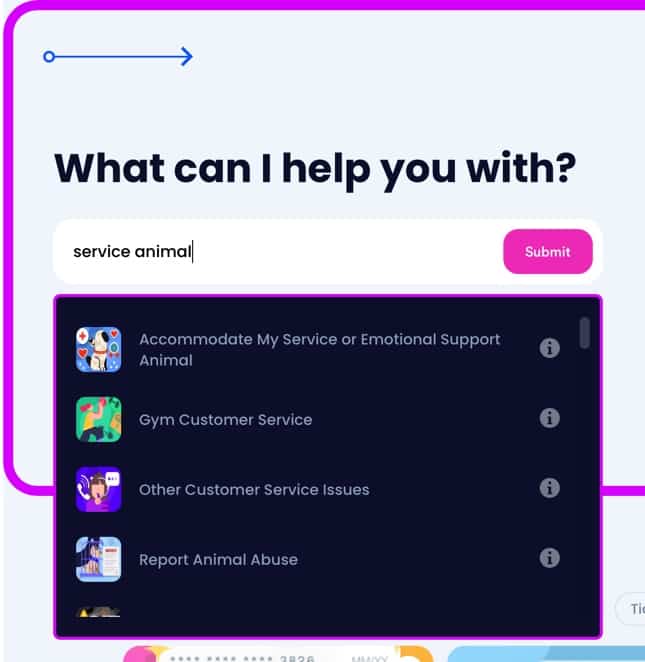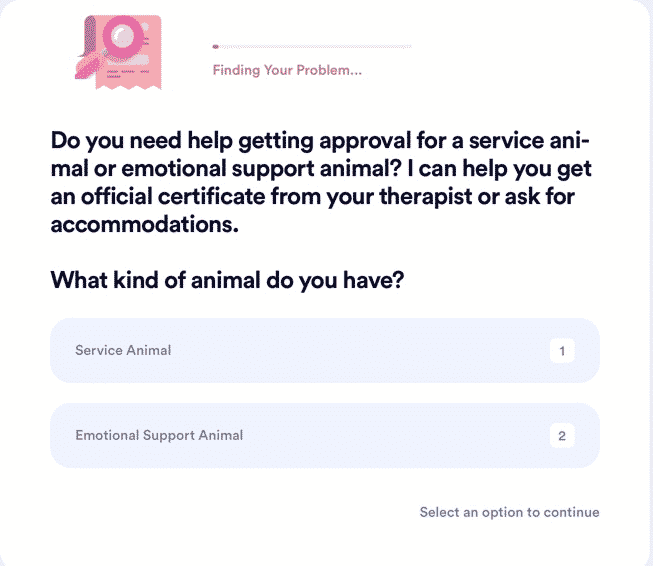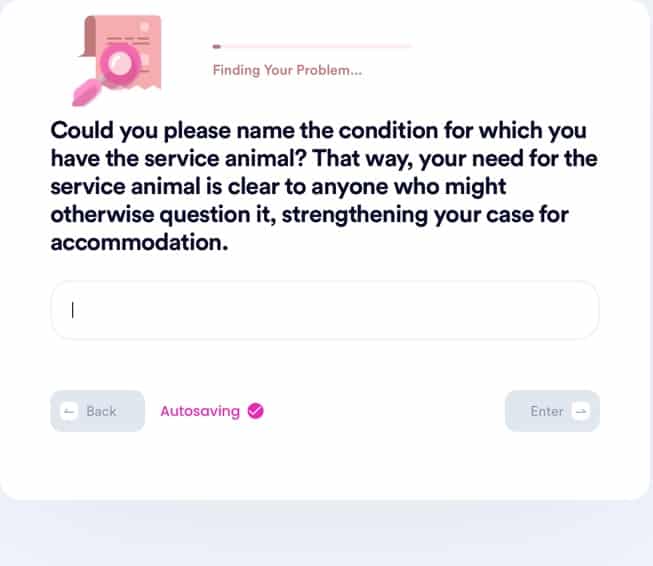How to Get an Emotional Support Animal in Connecticut
When it comes to finding an ESA, or Emotional Support Animal, there are hundreds of thousands already in the United States that help people with conditions like anxiety and depression manage their daily lives. Although ESAs are certainly a source of comfort, warmth, and companionship for their owners, many states and private businesses have rules for where ESAs are allowed. Here's a guide to living with an , one of many states that have seen an explosion in ESAs.
As part of our Emotional Support Animal Product, we have various, additional guides to life with an ESA including letters people need for accommodations for them, example letters, housing, and other important documents for ESA dogs and pets. Our resources also include guides for coping with landlords, such as reminding them of the Fair Housing Act that includes ESAs. Lastly, we have guides for flying with ESAs and offer specific advice on dealing with American Airlines, Southwest, and United Airlines.
What Is an Emotional Support Animal?
An Emotional Support Animal, or ESA, is a pet and companion that:
- Provides comfort, care, and emotional relief for an owner when the owner suffers from mental illness.
- Meets different needs and purposes than an ADA-certified pet, such as a seeing-eye dog.
- Isn't technically trained for disability-related tasks, according to the ADA.
- These tasks would include dogs for the blind that help them cross streets, etc.
- Can be other species besides dogs, including cats and other social species.
- Is registered, via prescription, from a mental health professional.
- Is a therapy dog vs. a psychiatric-care dog, or a disability dog.
Some benefits of owning emotional support animals:
| Reduced anxiety | Spending time with ESAs can lighten your mood and reduce your anxiety. |
| Companionship | An ESA can be a companion to people who experience loneliness. |
| Better physical health | ESA pets can help to reduce pain, lower blood pressure, and stabilize breathing rates. |
| Trauma support | If you're facing severe challenges like trauma, pets can provide comfort. |
| Reasons to live | Caring for an animal can enhance your self-worth, giving you a sense of purpose. Besides, you create an emotional bond as you care for the animal while receiving love in return. |
Who Can Prescribe an Emotional Support Animal in Connecticut?
The ESA laws in Connecticut are not more, nor less specific than the others in the continental United States. Most of the backlash against emotional support animals has been in response to lobbyists in regard to the major four airlines in the United States. Per state-specific laws, they tend to favor emotional support animals in lieu of federal restrictions and presently support more gains for ESAs and their owners.
In Connecticut, then, the laws would apply similarly to the rest of the country.
The prescribers of ESAs are:
- Doctors (physicians, Primary Care Practitioners).
- PAs, or Physician Assistants.
- RNs, or Registered Nurses.
- Therapists or Psychoanalysts, Psychiatrists, etc.
- MSWs or those licensed in Social Work (LCSWs).
- Those licensed as Marriage and Family therapists (LMFTs).
- Others in the medical field pertinent to mental health and management.
Finding Emotional Support Animals in Connecticut
Again, is akin to the federal laws on ESAs and pursuant to the ADA requirements on disabilities. ESAs in CT enjoy the same freedoms and privileges as those in other states, such as the right to accompany owners in housing, etc. Currently, there are no laws specific to Connecticut and the laws are equivalent to those in the other Continental US.
In some cases, the state laws and federal laws are not even in favor of ESAs and mean that private businesses and airlines do not provide certain exemptions to ESAs since 2021 laws ban them from airlines. However, DoNotPay is here to help generate requests for exemptions and other specific, crucial cases.
How to Ask for an Emotional Support Animal in Connecticut
Asking for an ESA in Connecticut is a right that one has as a citizen, US national, or person being treated for medical care in the United States on a green card, or visa.
Here's how to ask for an ESA:
- Begin seeing a psychologist or other mental health practitioners in the aforementioned list about depression, anxiety, or other pertinent illnesses wherein they can allocate you an ESA.
- Mention ESAs and your rights with existing healthcare professionals that you currently visit and ask for help.
- Introduce the idea of ESAs and mention their pivotal role in revolutionizing mental healthcare.
- Many should already be familiar with this term, able to prescribe, and licensed to help.
- If one's existing practitioner will not help, transfer to another clinic or professional that acknowledges this type of treatment.
- Make sure that your doctor who prescribes you an ESA generates an ESA letter and certification.
- Use this letter and certification to withstand scrutiny and keep your ESA with you for your health.
Standing Up for ESAs With DoNotPay
While it seems that ESAs and mental health conditions should be universally acknowledged, it is not always the case that every practitioner and provider issues them to all patients and clients. Furthermore, not all providers, care teams, and private businesses will recognize the right of individuals to carry around ESAs. In this case, DoNotPay will help you acquire the proper paperwork and stand up for not only yourself but your ESA.
Here's how DoNotPay can help:
By using the Service and Emotional Support Animals Product, DoNotPay is able to address all the troubles people with ESAs face. We can help contact landlords, help you get the right ESA letters, and assist with getting exemptions on airlines. Just access this portal today and be on your way!
- Search "service animal" on DoNotPay.

- Select the type of issue you need help with, including contacting your landlord about your ESA/service animal, asking your airline about ESA options, or requesting ESA/service accommodations at other venues.

- Answer a series of questions about your current situation and the details of your ESA/service animal, so we can generate the best results for you.

That's all you have to do! From there, DoNotPay will take over, whether it's creating the right letter templates for landlords, calling the air carrier's Customer Service, or getting a doctor to sign off on your ESA letter!


